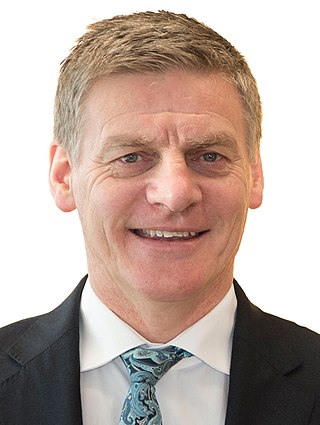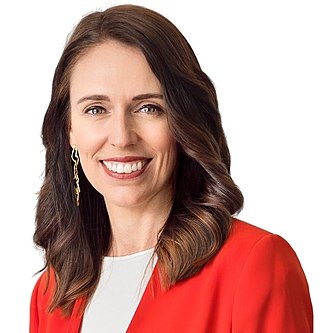Related Research Articles
United Future New Zealand, usually known as United Future, was a centrist political party in New Zealand. The party was in government between 2005 and 2017, first alongside Labour (2005–2008) and then supporting National (2008–2017).

Libertarianz was a political party in New Zealand that advocated libertarianism, favouring self-government and limiting the power of the government over the individual. Ayn Rand's philosophy of Objectivism was a major influence on the party. Its slogan "More Freedom, Less Government" is indicative of the party's basic policy platform. It went into recess and was de-registered by its own request in 29 January 2014.

The Republic of New Zealand Party is an unregistered New Zealand political party which seeks to end monarchy in New Zealand. It was a registered party from 2005 to 2009, contesting two general elections in that time and each time receiving the lowest share of the party vote. After deregistration, some members continued in politics under the party name, though since at least 2011 only one person, Jack Gielen, has contested elections under the name.

The New Zealand electoral system has been mixed-member proportional (MMP) since the 1996 election. MMP was introduced following a referendum in 1993. It replaced the first-past-the-post (FPP) system New Zealand had previously used for most of its history. Under MMP, New Zealanders have two votes to elect members of Parliament (MPs). The first vote is for a candidate from an electorate. The second is the party vote – for the political party the voter wants to form the government.

Ilam is a New Zealand parliamentary electorate. Formed for the 1996 election, it was held by Gerry Brownlee of the National Party until the 2020 election, when Sarah Pallett of the Labour Party unseated Brownlee in an upset victory. The seat reverted to National when it was won by Hamish Campbell in the 2023 election.

Mana is a New Zealand parliamentary electorate in the Wellington metropolitan area. It has been held by Barbara Edmonds of the Labour Party since the 2020 election.

Botany is a New Zealand parliamentary electorate, returning one Member of Parliament to the New Zealand House of Representatives. It was contested for the first time at the 2008 general election, and won by Pansy Wong for the National Party. Following Wong's resignation in late 2010, a by-election returned Jami-Lee Ross, who was confirmed by the voters in the 2011 general election. Ross left the National Party in October 2018 and became an independent. Ross did not contest the seat at the 2020 general election, and was succeeded by the new National candidate, Christopher Luxon, who became the party's leader in November 2021 and has served as prime minister since November 2023.

The 2014 New Zealand general election took place on Saturday 20 September 2014 to determine the membership of the 51st New Zealand Parliament.
The Mana Movement, originally known as the Mana Party, is a former political party in New Zealand. The party was led by Hone Harawira who formed it in April 2011 following his resignation from the Māori Party. Harawira won the by-election in Te Tai Tokerau of 25 June 2011 for the Mana Party and retained the seat during the 2011 general election in November.

New Conservatives is a conservative political party in New Zealand. Some opponents and observers have described the party's policies as far-right, though the party now states it has moved to a "more centrist" position under new leadership. It advocates for lower taxation, anti-abortion measures and austerity cuts.

Simon David O'Connor is a New Zealand politician and a former member of the New Zealand House of Representatives for the National Party. He represented the Tāmaki electorate from 2011 to 2023.

1Law4All was a registered political party in New Zealand. The party was launched in June 2013 and was temporarily led by Tom Johnson. The party supported removing references to the Treaty of Waitangi from legislation, abolition of the Waitangi Tribunal and Māori electorates, repeal of the Marine and Coastal Area Act 2011, and withdrawal of New Zealand from the UN Declaration on the Rights of Indigenous Peoples. The party never contested an election and was deregistered in May 2015.

The Internet Party was a registered political party in New Zealand that promoted Internet freedom and privacy. The party was founded in January 2014 with the financial support and promotion of internet entrepreneur Kim Dotcom, and was first led by former Alliance MP Laila Harré, then by citizen journalist Suzie Dawson.

The 2017 New Zealand general election took place on Saturday 23 September 2017 to determine the membership of the 52nd New Zealand Parliament. The previous parliament was elected on 20 September 2014 and was officially dissolved on 22 August 2017. Voters elected 120 members to the House of Representatives under New Zealand's mixed-member proportional (MMP) voting system, a proportional representation system in which 71 members were elected from single-member electorates and 49 members were elected from closed party lists. Around 3.57 million people were registered to vote in the election, with 2.63 million (79.8%) turning out. Advance voting proved popular, with 1.24 million votes cast before election day, more than the previous two elections combined.

The New Zealand People's Party was a political party in New Zealand. The party was established in 2015 and had a particular focus on the rights of immigrants. It operated as an independent party for a 2016 by-election and the 2017 general election, and as a component party of Advance New Zealand for the 2020 election. The party's leader, as of September 2020, was Anil Sharma.

The 2020 New Zealand general election was held on Saturday 17 October 2020 to determine the composition of the 53rd New Zealand Parliament. Voters elected 120 members to the House of Representatives, 72 from single-member electorates and 48 from closed party lists. Two referendums, one on the personal use of cannabis and one on euthanasia, were also held on the same day. Official results of the election and referendums were released on 6 November.

Vision NZ is a nationalist political party in New Zealand led by Hannah Tamaki, the co-leader of the fundamentalist Christian movement Destiny Church. Its policies have included opposition to abortion, homosexuality, immigration, and the construction of new mosques. It has supported creating a Māori-owned bank and Tūhoe ownership of Te Urewera, and has called for government funding for Destiny Church programmes.

The Advance New Zealand Party was a short-lived political party in New Zealand from 2020 to 2021. The idea was first unveiled in a newsletter from founder Jami-Lee Ross in April 2020. Ross has claimed that the party was a centrist and anti-corruption movement designed to appeal to voters "in the middle"; however, their main policies represent the political fringe rather than centre.
Heartland New Zealand is a New Zealand political party founded in 2020. The party is rural-based, and opposed the New Zealand Emissions Trading Scheme, the Paris Agreement, and attempts to limit the environmental impacts of agriculture.
References
- ↑ "The Expats - NZ Political Party - About". www.facebook.com. Retrieved 3 March 2017.
- 1 2 Cheng, Derek (18 July 2014). "Expat Party taking run at Parliament". New Zealand Herald. Retrieved 22 July 2014.
- ↑ Hamblin, Andrea (17 July 2014). "New Zealanders living in Australia are demanding rights and government assistance". Herald Sun. Retrieved 22 July 2014.
- ↑ Su, Reissa (18 July 2014). "New Zealanders Fight for Rights in Australia with Expat Party's Race to Parliament". International Business Times. Retrieved 22 July 2014.
- 1 2 "The Expatriate Party of New Zealand plans to fight Voting Law". The Expat Hub. 11 February 2014. Retrieved 22 July 2014.
- ↑ "Expatriate Party of New Zealand website". Archived from the original on 27 April 2014. Retrieved 22 July 2014.
- ↑ "Expat Party Facebook page". Facebook . Archived from the original on 26 July 2014. Retrieved 22 July 2014.
- ↑ "The Expats - NZ Political Party". www.facebook.com. Retrieved 3 March 2017.
- 1 2 "Expat Party won't be registered". 21 August 2014. Retrieved 21 August 2014.
- ↑ Flitton, Daniel (16 July 2014). "Kiwis fight for social service rights in Australia". Sydney Morning Herald. Retrieved 22 July 2014.
- ↑ "The Expats - NZ Political Party". Facebook . Retrieved 3 March 2017.
- ↑ "2017 Variation Broadcasting Allocation Decision Released". Electoral Commission. Archived from the original on 23 August 2017. Retrieved 23 August 2017.
- ↑ "The Expats - NZ Political Party". www.facebook.com. Retrieved 23 August 2017.